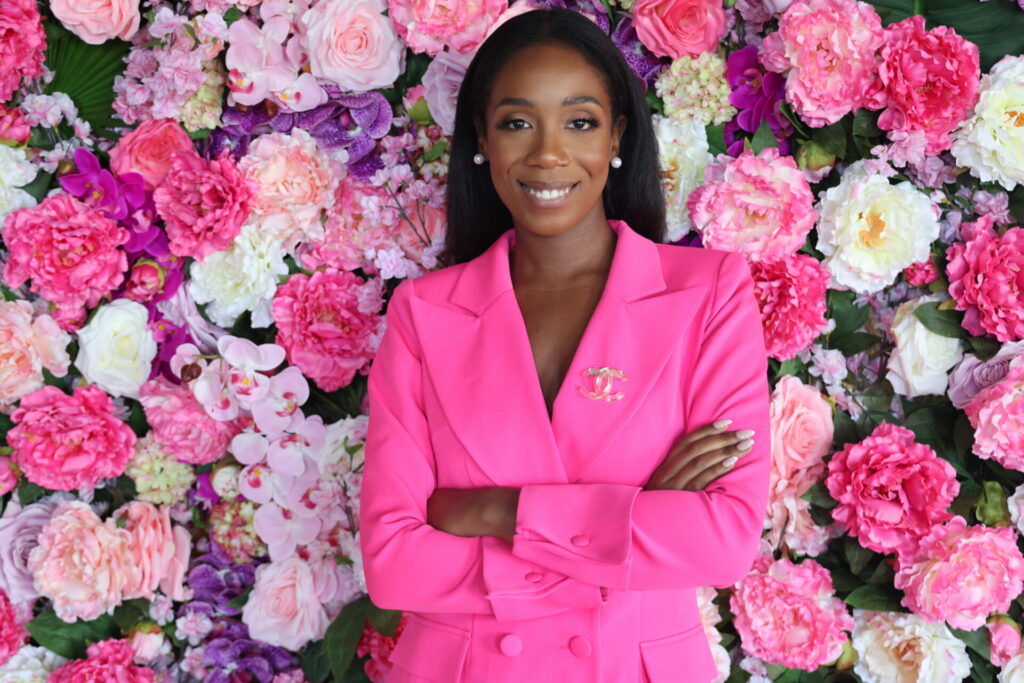Caged Bird HR is the first-of-its kind HR services company to provide employees access to independent HR support.
“As a black woman who left corporate America to start her own business, I can say that companies should be concerned. More and more black women are leaving corporate America in search of better lifestyles, less stress and overall peace in life.”
- What is the current role of HR with regard to helping to facilitate a healthy environment for Black women? And what should it be?
HR does a lot of different things for any organization. Compliance, strategic people planning and a healthy work environment for all employees is within HR’s scope. Studies tell us that black women have the worst experience at work, yet HR has not tried to solve this issue. I think there are many different reasons for that, and the most obvious is that to solve the problem, they would have to invest in trying to understand where the breakdown is happening. I don’t believe HR as a function is having the right conversations about many things, employee experiences being one of them.
2. What differentiates Caged Bird HR’s approach? How do employees use your services?
Caged Bird HR is a full-scale HR services company and the first to offer independent HR support directly to employees. Employees can speak to an HR expert not associated with their company for the first time to get HR advice and strategic guidance. Employees looking for a place to get safe, culturally competent HR support that is in their best interest and not their employer’s best interest can now get that support. The success of the business in such a short period tells us that this service is not only needed but valued in the market.
We also offer small business HR consulting. The benefit of our integrated business model is that we take the real-time data from our employee consulting function and use it to advise small businesses on how to execute HR equitably and become an employer of choice in the talent marketplace as a result. A lot of companies get HR wrong, but if you can get it right, companies will have a competitive advantage in the marketplace.
3. We are finding that Black women experience high rates of being placed on Corrective Action Plans. The SEC did a review of racial and ethnic disparities for Corrective Action because it is a nationwide problem in the workplace. Why do you think Black women are placed on these plans at a higher rate? What can HR departments do to eliminate this disparity?
We support employees across the country, most of which are black women. We see trends in the data, and the cases where the employee has been put on a PIP, formal or informal, usually start with employees not being set up for success. Unclear expectations, frequent manager changes in the first six months and failure to receive the benefit of the doubt are all themes we see when supporting employees through corrective action plans. To eliminate the disparity, I think HR has to be more involved and highly involved with employee onboarding. Currently, HR just welcomes you in and then leaves it up to your manager to onboard you appropriately. A high-touch onboarding experience with scheduled check-ins with HR to examine things like working relationships, manager expectations, etc, would be helpful.
4. Every Black woman we spoke with about their experience with Corrective Action said they were shocked they were even placed on a plan. Why do you think there is such a gap between a manager saying they’ve coached the employee while the employee had no knowledge they were being coached—hence, the shock of an action plan? What role does HR play in this communication breakdown?
Most employees are unaware of how HR works, and that’s by design. So, employees could receive all the signs that they are about to be put on a Corrective Action plan but just think that is normal performance feedback. Part of the problem is that managers are not equipped to give clear performance feedback. HR’s role is to equip managers to give clear feedback and ensure that managers measure performance equitably and objectively.
5. We surveyed Black women and asked them to think about their best and worst work experiences in the workplace and to tell us the gender and race of their manager at the time. Hands down, the best experiences were with white male bosses (98%), and the worst was with white women (96%). With a white male boss, they gave examples that they always got their full bonus, felt trusted to do their job and supported for advancement. With white woman bosses, they reported feeling belittled, micromanaged, bullied, overworked and unprotected. Many claim that when evaluating job offers, the gender and race of the boss is a significant factor in their decision to accept the offer. Should HR consider this when hiring, promoting and disciplining Black women in the workplace?
At Caged Bird HR, we collect a lot of data from employees that reach out to us for support. Our data tells us that employees have the worst experiences when they report to white women, which is kind of ironic if you think about it because, in the past decade or so, white women have become the poster children for diversity and inclusion. Yet, they are perpetuating the most harm in the workplace. Companies absolutely should consider race dynamics, and they should collect and analyze data on exited employees and what was the race of their managers. The problem is how do we solve this when HR is a white woman-dominated field? And HR would be the function to implement solutions to this problem. HR has to start holding managers at every level accountable for inequitable experiences and outcomes in their organization. That begins with collecting the right data and analyzing it.
6. In 2020, the Department of Labor reported that Black women’s participation in the labor force dropped significantly from 60.5 percent in 2019 to 58.8 percent, and many are leaving to start their own companies. We know that Black women are the most educated demographic in the U.S., are known trendsetters, great managers, and make significant contributions to all disciplines and industries. Yet, discrimination and inequitable treatment cause a continuous exodus. Should companies be worried they are losing this talent? In your experience, what are they prepared to do, if anything, to regain this talented segment of employees?
As a black woman who left corporate America to start her own business, I can say that companies should be concerned. More and more black women are leaving corporate America in search of better lifestyles, less stress and overall peace in life. As an employer of black women, I’m very cognizant of the work environment and culture we create internally at Caged Bird HR. I try to create a work environment that is supportive and safe for all employees. To be honest, I don’t think Corporate America is prepared to regain the talent because they aren’t even prepared to keep the talent they do have.

founder and CEO
Caged Bird HR
